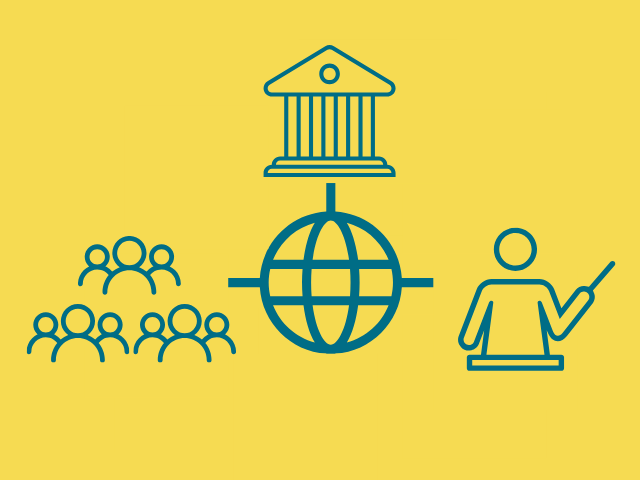⭐️By Dr. Jody Britten⭐️
In Bangladesh, Light of Hope has pioneered solar-powered digital classrooms that have doubled literacy rates in participating communities. In Kenya, organizations like Kenya Connect have trained teachers in coding and implemented innovative training spaces to support scaled innovation.
These stories and others demonstrate how nongovernmental organizations (NGOs) drive positive impact in education. Despite uneven access to quality education across the globe, NGOs are transforming the global educational landscapes in ways that governments and multilateral agencies cannot achieve alone, particularly in under-resourced contexts where systemic barriers limit opportunity.
Actualizing Government Strategy Within Their Communities
While governments and multilateral agencies provide policy frameworks and funding structures, NGOs often translate those ambitions into meaningful, localized implementation. Their proximity to communities, operational flexibility, and commitment to equitable access make NGOs critical actors in the ecosystem of educational systems-change.
Government-led education initiatives are well-intentioned and necessary to move local communities forward. However, these efforts frequently stall in execution due to bureaucratic constraints, capacity limitations, barriers to continual implementation, political shifts, or lack of contextual relevance.
NGOs step in to close these implementation gaps with remarkable agility. They can prototype new models, refine them through community feedback, and adapt rapidly to changing conditions. This flexibility positions NGOs to support governments and educational ecosystems in implementing scalable, high-impact solutions that might otherwise remain as policy documents rather than lived realities.

Embracing Innovation in Education
Beyond their role as implementers, NGOs serve as an important arm of the innovation engine that drives the education sector. Often, NGOs are early adopters and implementers of breakthrough approaches that later become standard practice.
NGOs like Pratham have developed and tested methods that multiple government systems later adopted.
NGOs pilot and refine many practices that public systems will integrate in the future. NGOs have introduced technology-enabled learning in resource-constrained environments, developed competency-based assessment approaches, and many other practices. By combining a willingness to experiment with a deep understanding of the social, cultural, and economic conditions of the communities they serve, NGOs lead educational interventions that are both practical and impactful.

Centering Community for Relevant, Sustainable Change
This innovation mindset is grounded in something equally important: NGOs bring a fundamentally community-centered lens to education. Unlike top-down reforms that may fail to account for local contexts, NGOs co-design community programs that reflect lived experience. They work directly with:
- Students
- Caregivers
- Educators
- Local leaders
NGOs’ community-focused efforts extend far beyond instructional delivery. Organizations like Room to Read focus on a holistic approach to girls’ education. They address not just classroom access, but also community attitudes, family economic pressures, and life skills development.
Like Room to Read, many NGOs globally provide comprehensive wraparound support, recognizing that learning doesn’t occur in isolation from other social and economic factors. This wraparound support includes nutrition programs, mental health services, and digital access.
When designed thoughtfully, these community-centered initiatives go beyond providing access to education to enhance the relevance and quality of learning experiences. This work creates sustainable change that outlasts individual program cycles.

Affecting Systemic Change in the Education Sector
Local ties do not prevent NGOs from contributing to systems-level learning and positive change. NGOs often serve as a crucial conduit between under-resourced populations and decision-makers, ensuring that education reforms are grounded in grassroots realities and inclusive of diverse needs.
Leading organizations have the potential to generate data and insights that inform public sector strategies through contributions like:
- rigorous research
- monitoring and evaluation
- policy advocacy
Organizations like the Brookings Institution’s Center for Universal Education and J-PAL’s education initiative have demonstrated how NGO-generated evidence can influence policy at scale. Their research on cost-effective interventions, implementation challenges, and community engagement strategies provides the foundation for more effective government programs.
The most impactful organizations are those that invest in local capacity building, center community ownership, and collaborate strategically with government and other partners to align with broader system goals. These NGOs understand that their role is not to replace public systems but to strengthen and complement them.
Leveraging NGOs Can Support Greater Access to Inclusive, Equitable, and Quality Education for All
As we work toward inclusive, equitable, and quality education for all (the vision of Sustainable Development Goal 4), we know that NGOs are not peripheral to that mission. They are integral partners whose work complements formal systems, strengthens implementation capacity, and accelerates the diffusion of evidence-based practice.
It is essential to support NGO organizational capacity, help improve alignment across stakeholders, and recognize NGOs’ role in long-term systems change to realize ambitious global education goals. We need to move beyond viewing NGOs as temporary gap-fillers and move toward recognizing them as permanent partners in educational ecosystem development.
- For policymakers, this suggests creating more systematic opportunities for NGO input in education planning and implementation.
- For funders, it means supporting longer-term capacity building rather than just project-specific interventions.
- For practitioners, it requires embracing collaborative approaches that leverage the unique strengths each actor brings to the system.
Ultimately, the most successful education advances happen when NGOs, governments, communities, and other stakeholders work together as co-constructors rather than competitors. Governments provide policy frameworks, regulatory oversight, and systemic reach. Communities contribute local knowledge, cultural wisdom, and sustainable engagement. NGOs bring innovation, community connection, and implementation expertise.
Educational transformation is not a zero-sum game where one actor succeeds at the expense of others. It is a shared endeavor NGOs, governments, and communities collaborate to create educational opportunities that no singular entity could achieve alone.
Team4Tech supports NGO staff with capacity-building programs resulting in engaged learners, effective facilitation, and improved use of technology. Learn more about how Team4Tech accelerates the impact of education-focused NGOs to create quality educational experiences for more learners.
